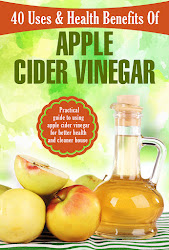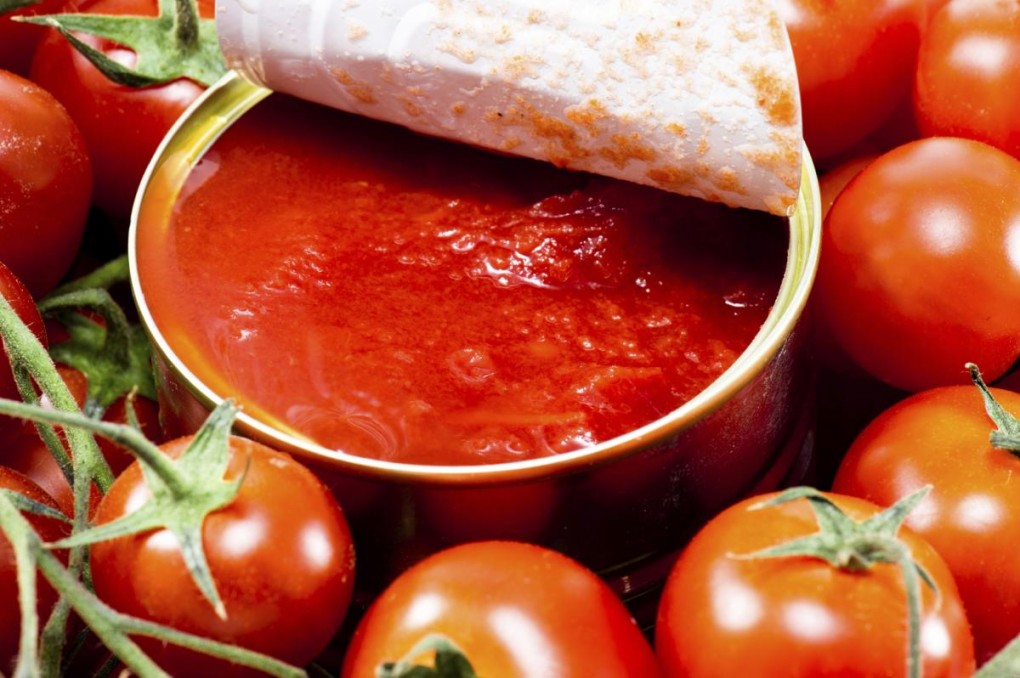8 Foods That Cause Cancer – You Need To Stop Eating Them NOW!
By Organic and Healthy
It’s hard to know what’s safe to eat sometimes. Sure, we know to avoid GMOs, high fructose corn syrup, and overly refined foods – but beyond that, it can get confusing.
Fortunately, we’re here with expert advice.
We talked with specialists from eight different fields, to ask them what food they’d each be certain to avoid; their recommendations are below.
1. The Endocrinologist Won’t Eat: Canned Tomatoes
As Fredrick Vom Saal, endocrinologist at the University of Missouri, explains: The resin linings of tin cans contain bisphenol-A (more commonly known as BPA), a synthetic estrogen that has been linked to ailments ranging from reproductive problems to heart disease, diabetes, and obesity. Unfortunately, acidity (a prominent characteristic of tomatoes) causes BPA to leach into your food. Studies show that the BPA in most people’s body exceeds the amount that suppresses sperm production or causes chromosomal damage to the eggs of animals. “You can get 50 mcg of BPA per liter out of a tomato can, and that’s a level that is going to impact people, particularly the young,” says vom Saal. “I won’t go near canned tomatoes.”
The solution: Choose tomatoes in glass bottles or in Tetra Pak boxes.
2. The Farmer Won’t Eat: Corn-Fed Beef
As Joel Salatin, co-owner of Polyface Farms and renowned sustainable farming author, notes: Cattle evolved to eat grass, not grains. But farmers today feed their animals corn and soybeans, which fatten up the animals faster for slaughter. But more money for cattle farmers (and lower prices at the grocery store) means a lot less nutrition for us. A recent comprehensive study conducted by the USDA and researchers from Clemson University found that compared with corn-fed beef, grass-fed beef is higher in beta-carotene, vitamin E, omega-3s, conjugated linoleic acid (CLA), calcium, magnesium, and potassium; lower in inflammatory omega-6s; and lower in saturated fats that have been linked to heart disease. “We need to respect the fact that cows are herbivores, and that does not mean feeding them corn and chicken manure,” says Salatin.
The solution: Buy grass-fed beef.
3. The Toxicologist Won’t Eat: Microwave Popcorn
 As Olga Naidenko, a senior scientist for the Environmental Working Group, notes: Chemicals, including perfluorooctanoic acid (PFOA), in the lining of the bag, are part of a class of compounds that may be linked to infertility in humans, according to a recent study from UCLA. In animal testing, the chemicals cause liver, testicular, and pancreatic cancer. Studies show that microwaving causes the chemicals to vaporize–and migrate into your popcorn. “They stay in your body for years and accumulate there,” says Naidenko, which is why researchers worry that levels in humans could approach the amounts causing cancers in laboratory animals. DuPont and other manufacturers have promised to phase out PFOA by 2015 under a voluntary EPA plan, but millions of bags of popcorn will be sold between now and then.
As Olga Naidenko, a senior scientist for the Environmental Working Group, notes: Chemicals, including perfluorooctanoic acid (PFOA), in the lining of the bag, are part of a class of compounds that may be linked to infertility in humans, according to a recent study from UCLA. In animal testing, the chemicals cause liver, testicular, and pancreatic cancer. Studies show that microwaving causes the chemicals to vaporize–and migrate into your popcorn. “They stay in your body for years and accumulate there,” says Naidenko, which is why researchers worry that levels in humans could approach the amounts causing cancers in laboratory animals. DuPont and other manufacturers have promised to phase out PFOA by 2015 under a voluntary EPA plan, but millions of bags of popcorn will be sold between now and then.
The solution: Pop organic kernels the old-fashioned way: in a skillet. For flavorings, you can add real butter or dried seasonings, such as dill weed, vegetable flakes, or soup mix.
4. The Farm Director Won’t Eat: Nonorganic Potatoes
As Jeffrey Moyer, chair of the National Organic Standards Board, notes: Root vegetables absorb herbicides, pesticides, and fungicides that wind up in soil. In the case of potatoes–the nation’s most popular vegetable–they’re treated with fungicides during the growing season, then sprayed with herbicides to kill off the fibrous vines before harvesting. After they’re dug up, the potatoes are treated yet again to prevent them from sprouting. “Try this experiment: Buy a conventional potato in a store, and try to get it to sprout. It won’t,” says Moyer, who is also farm director of the Rodale Institute (also owned by Rodale Inc., the publisher of Prevention). “I’ve talked with potato growers who say point-blank they would never eat the potatoes they sell. They have separate plots where they grow potatoes for themselves without all the chemicals.”
The solution: Buy organic potatoes. Washing isn’t good enough if you’re trying to remove chemicals that have been absorbed into the flesh.
5. The Fisheries Expert Won’t Eat: Farmed Salmon
 As Dr. David Carpenter, director of the Institute for Health and the Environment at the University at Albany, notes: Nature didn’t intend for salmon to be crammed into pens and fed soy, poultry litter, and hydrolyzed chicken feathers. As a result, farmed salmon is lower in vitamin D and higher in contaminants, including carcinogens, PCBs, brominated flame retardants, and pesticides such as dioxin and DDT. According to Carpenter, the most contaminated fish come from Northern Europe, which can be found on American menus. “You could eat one of these salmon dinners every 5 months without increasing your risk of cancer,” says Carpenter, whose 2004 fish contamination study got broad media attention. “It’s that bad.” Preliminary science has also linked DDT to diabetes and obesity, but some nutritionists believe the benefits of omega-3s outweigh the risks. There is also concern about the high level of antibiotics and pesticides used to treat these fish. When you eat farmed salmon, you get dosed with the same drugs and chemicals.
As Dr. David Carpenter, director of the Institute for Health and the Environment at the University at Albany, notes: Nature didn’t intend for salmon to be crammed into pens and fed soy, poultry litter, and hydrolyzed chicken feathers. As a result, farmed salmon is lower in vitamin D and higher in contaminants, including carcinogens, PCBs, brominated flame retardants, and pesticides such as dioxin and DDT. According to Carpenter, the most contaminated fish come from Northern Europe, which can be found on American menus. “You could eat one of these salmon dinners every 5 months without increasing your risk of cancer,” says Carpenter, whose 2004 fish contamination study got broad media attention. “It’s that bad.” Preliminary science has also linked DDT to diabetes and obesity, but some nutritionists believe the benefits of omega-3s outweigh the risks. There is also concern about the high level of antibiotics and pesticides used to treat these fish. When you eat farmed salmon, you get dosed with the same drugs and chemicals.
The solution: Switch to wild-caught Alaska salmon. If the package says fresh Atlantic, it’s farmed; there are no commercial fisheries left for wild Atlantic salmon.
6. The Cancer Researcher Won’t Drink: Milk Produced With Artificial Hormones
As Rick North, project director of the Campaign for Safe Food at the Oregon Physicians for Social Responsibility and former CEO of the Oregon division of the American Cancer Society, notes: Milk producers treat their dairy cattle with recombinant bovine growth hormone (rBGH or rBST, as it is also known) to boost milk production. But rBGH also increases udder infections and even pus in the milk. It also leads to higher levels of a hormone called insulin-like growth factor in milk. In people, high levels of IGF-1 may contribute to breast, prostate, and colon cancers. “When the government approved rBGH, it was thought that IGF-1 from milk would be broken down in the human digestive tract,” says North. “There’s not 100 percent proof that this is increasing cancer in humans,” admits North. “However, it’s banned in most industrialized countries.”
The solution: Buy raw milk or check labels for rBGH-free, rBST-free, produced without artificial hormones, or organic milk, as these phrases indicate rBGH-free products.
7. The Biotech Specialist Who Won’t Eat Convenional Soy: GMO Unfermented Soy
Michael Harris, biotech specialist and former consultant, manager, and director for companies such as Xenon Pharmaceuticals and Genon Corporation, notes: Genetically engineered food is a cause of great concern due to the manipulation of DNA and genetic code including transfers from one species to another. He adds that fermented soy is the only soy fit for human consumption and since almost 90% of soy in the world is genetically modified, if you are not ensuring sources are organic, long-term health problems are inevitable, especially since soy has been found to affect hormonal balance and even cause cancer.
The solution: Check labels to ensure soy is Non-GMO or organic and never consume unfermented sources.
8. The Organic-Foods Expert Won’t Eat: Conventional Apples
 As Mark Kastel, co-director of the Cornucopia Institute (a farm-policy research group that supports organic foods), notes: If fall fruits held a “most doused in pesticides contest,” apples would win. Why? They are individually grafted (descended from a single tree) so that each variety maintains its distinctive flavor. As such, apples don’t develop resistance to pests and are sprayed frequently. The industry maintains that these residues are not harmful. But Kastel counters that it’s just common sense to minimize exposure by avoiding the most doused produce, like apples. “Farm workers have higher rates of many cancers,” he says. And increasing numbers of studies are starting to link a higher body burden of pesticides (from all sources) with Parkinson’s disease.
As Mark Kastel, co-director of the Cornucopia Institute (a farm-policy research group that supports organic foods), notes: If fall fruits held a “most doused in pesticides contest,” apples would win. Why? They are individually grafted (descended from a single tree) so that each variety maintains its distinctive flavor. As such, apples don’t develop resistance to pests and are sprayed frequently. The industry maintains that these residues are not harmful. But Kastel counters that it’s just common sense to minimize exposure by avoiding the most doused produce, like apples. “Farm workers have higher rates of many cancers,” he says. And increasing numbers of studies are starting to link a higher body burden of pesticides (from all sources) with Parkinson’s disease.
If you enjoyed this article or learned something new, please don’t forget to share it with others so they have a chance to enjoy this free information. This article via NB is open source and free to reblog or use if you give a direct link back to the original article URL. Thanks for taking the time to support an open source initiative. We believe all information should be free and available to everyone. Have a good day and we hope to see you soon!









